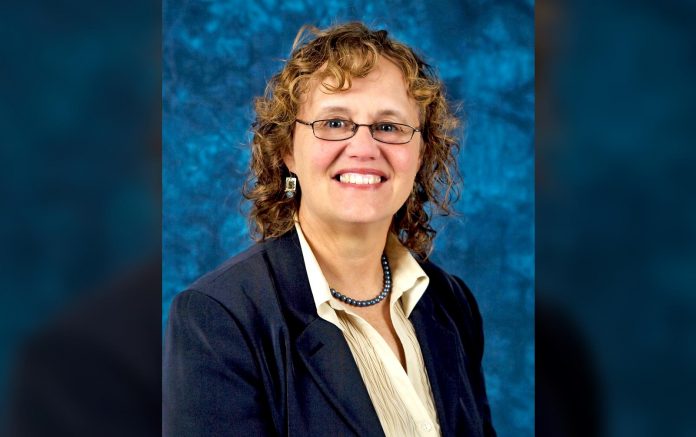
By Cynthia L. Kryder, MS
Roswell Park Cancer Institute in Buffalo, New York, US, expects to be the site for the first US clinical trial of CimaVax, the groundbreaking lung cancer vaccine developed at Cuba’s Center for Molecular Immunology (CIM). Set to commence within the next 6 months, pending clearance from the FDA, the trial will evaluate the benefit of CimaVax plus nivolumab in patients with advanced non-small cell lung cancer (NSCLC) whose disease has progressed after first-line treatment and who are eligible to receive nivolumab, the current standard of care. The single-arm, single-institution trial will begin with a two-part phase I dose-ranging study to determine the optimal dose as well as the optimal vaccination schedule; it will then proceed to a phase II trial to assess efficacy and safety of the immunotherapy combination, explains Professor Mary Reid, PhD, MSPH, Director of Cancer Screening and Survivorship at Roswell Park Cancer Institute. “We plan to enroll 18 patients in each part of the phase I trial and 60 patients in phase II,” says Dr. Reid. “The primary phase II endpoint will be overall survival at 1 year. Patients will remain on therapy as long as they continue to respond.”
CimaVax is an epidermal growth factor (EGF)-based vaccine that contains one of the most important ligands of the epidermal growth factor receptor (EGFR) coupled to a carrier protein, recombinant P64, and administered together with an adjuvant. The carrier protein and the adjuvant are necessary to break down the tolerance against EGF, a self-protein.1 Vaccination with CimaVax initiates a specific immune response that sequesters EGF, essentially starving the tumor of the ligand that feeds the EGF receptor, which stops tumor growth and slows or halts disease progression.
In clinical trials in Cuba, CimaVax improved overall survival in patients with advanced NSCLC compared with controls.
Development of the CimaVax vaccine for lung cancer began more than a decade ago because Cuba had no second-line therapies to offer patients, explains Dr. Reid. With no access to targeted agents or immunotherapies because of the trade embargo, Cuban patients with advanced lung cancer who failed first-line chemotherapy had no treatment options. Today, CimaVax is widely used in Cuba in the primary care setting, where patients with advanced lung cancer receive monthly vaccine injections from their primary care physicians.
In clinical trials in Cuba, CimaVax improved overall survival in patients with advanced NSCLC compared with controls.1,2 “The greatest benefit was seen in patients with high pretreatment circulating EGF ligand levels and those who demonstrated a good anti-EGF antibody response,” says Dr. Reid. In addition, among patients who achieved seroconversion, those who were 60 years or younger survived significantly longer, median of 11.57 months, than controls in the younger age cohort, median 5.33 months; P = 0.0124.2
Moreover, CimaVax has an excellent safety profile. “We have extensive data on CimaVax toxicity,” says Dr. Reid, “and CimaVax alone is very safe. However, we don’t know what will happen from a toxicity standpoint when CimaVax is combined with nivolumab.” In the Cuban trials, the majority of toxicities were grade 1 and 2 adverse events, including inflammation at the injection site, fever, nausea, and vomiting, which were manageable and did not result in discontinuation of treatment.1,2
Although CimaVax research to date has focused primarily on patients who already have lung cancer and those who are at high risk, such as patients whose lung cancer is in remission, CimaVax may have a broader application to patients with other cancers in which EGFR is overexpressed, such as pancreatic, breast, prostate, colon, and head and neck cancers. CimaVax also may be effective in primary prevention of lung cancer. These additional areas of research will be explored in the future if the initial CimaVax results here in the United States are positive.
Roswell Park Cancer Institute has been collaborating with Cuba’s CIM for the past five years and has a robust postdoctoral exchange program. The recently loosened sanctions against Cuba have made it easier for researchers to travel between countries, to share information, and to bring the CimaVax vaccine to patients with advanced lung cancer in the United States. Roswell Park’s research will be complementary to that already being conducted in Cuba.
Targeting the patient’s immune system, rather than the tumor alone, represents an exciting and novel approach to the treatment of advanced lung cancer that may significantly extend patients’ lives. Furthermore, combining a vaccine that targets EGF with a checkpoint inhibitor such as nivolumab may stimulate the immune system in a way that improves patients’ response to nivolumab. “This approach is a great scientific opportunity to push the treatment of lung cancer in a new direction,” asserts Dr. Reid.
References
1. Rodriguez PC, Popa X, Martinez O, et al. A phase III clinical trial of the epidermal growth factor vaccine CIMAVax-EGF as switch maintenance therapy in advanced non-small cell cancer patients. Clin Cancer Res. 2016 Feb 29 [Epub ahead of print]. PMID: 26927662 DOI: 10.1158/1078-0432.CCR-15-0855.
2. Vinageras EN, de la Torre A, Rodriguez MO, et al. Phase II randomized controlled trial of an epidermal growth factor vaccine in advanced non-small-cell lung cancer. J Clin Oncol. 2008; 26:1452-1458.










